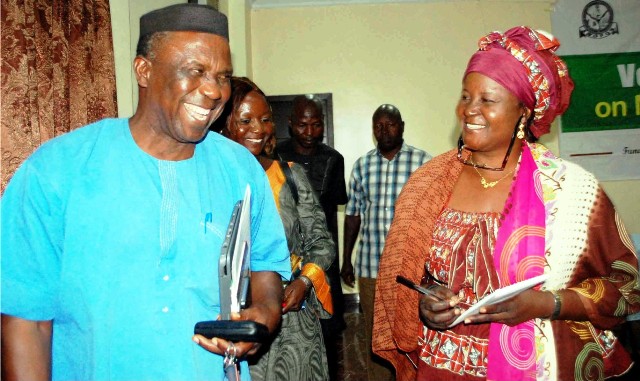Business
What Africa Needs To Address Inequality, Unemployment – ECA Scribe

Acting Executive Secretary, Economic Commission for Africa (ECA), Mr Abdalla Hamdok, said that African countries needed to adopt coherent strategies and national development plans to address inequality and unemployment.
Hamdok said this in a statement posted on the ECA website and accessed by newsmen on Friday in Abuja.
The official said there was need for the continent to adopt plans that would promote structural transformation and address the challenges of growth and unemployment.
According to him, these issues will be addressed at the forthcoming Joint Annual Ministerial Conference of ECA and the African Union Commission (AUC).
Hamdok said that the conference, themed, “Growth, Inequality and Unemployment”, would host Africa Ministers of Finance, Economic Development and Planning and other stakeholders in Dakar, Senegal, from 23 to 28 March 2017.
“Preparations have reached advanced stages for the forum that provides Africa with a platform to discuss issues pertinent to her development.
“The theme builds on the understanding that the sustained reduction of inequality requires a holistic understanding of the interrelated issues for coherent policy making.
“We will address strategies for enhancing inclusive growth and promoting employment, especially for women and young people,” said the ECA boss.
He said that the conference would explore measures for reducing inequality and extreme poverty on the continent.
“It will explore measures for reducing extreme poverty in order to achieve the targets of the First 10-Year Implementation Plan (2013-2023) of Agenda 2063 and the goals of the 2030 Agenda for Sustainable Development.
“It will also seek to find pathways towards inclusive and job-creating growth by engaging with representatives of the private sector, civil society organisations, think tanks, academic and research institutions and other stakeholders,”Hamdok said.
The ECA official said that the conference would be preceded by the Committee of Experts meeting from March 23 to March 25, while the Conference of Ministers would be March 27 to 28.
“We expect that seasoned and high-level panellists from within and outside Africa will build on the overarching theme towards an outcome that will have important implications for Africa’s future,” he said.
Transport
Automated Points Concession : FAAN Workers Gave 72hrs To Revise Decisions In PH

Transport
FAAN Announces Pick-Up Points for Go-Cashless Cards

Business
Fidelity Bank To Empower Women With Sustainable Entrepreneurship Skills, HAP2.0
-
Politics3 days ago
2027: NIGERIANS FAULT INEC ON DIGITAL MEMBERSHIP REGISTER DIRECTIVE
-

 Environment3 days ago
Environment3 days agoLAWMA Director Says Sweeping Reforms Have Improved Waste Collection
-
Politics3 days ago
LP Crisis: Ex-NWC Member Dumps Dumps Abure Faction
-

 Politics3 days ago
Politics3 days agoUmahi Dismisses Allegations On Social Media, Insists On Projects Delivery
-

 Sports3 days ago
Sports3 days agoAbia Not Sure To Secure continental Ticket
-
Politics3 days ago
NATASHA ELECTRIC VEHICLES INITIATIVE IN KOGI CENTRAL
-
Sports3 days ago
La Liga: Yamal Records First Career Hat-trick
-

 Sports3 days ago
Sports3 days agoPSG Extend Lead In Ligue 1

